Neal Shusterman
Thief Of Souls
ACKNOWLEDGMENTS
This novel, more than three years in the making, would not have been possible without the help of a great many people, without whom I would have been overwhelmed in the waters.
My gratitude to Man Susanyatame of the Hualapai, for his wit, wisdom, and wonderful translations. My appreciation to Barbara Potter, Jeanne Hess, Cindy Adams, and other educators who read early drafts of the novel. My thanks to the Fictionaires; the mysterious and insightful cabal that challenges me to push the envelope, and Jennifer Leavitt-Wipf for helping me to keep all the plates spinning. My deepest thanks to Kathleen Doherty, Jonathan Schmidt, and Linda Quinton for their passion and belief in my work, as well as their friendship, and to Orson Scott Card, for giving me something to aspire to.
Most of all, I’d like to thank Elaine, and the kids, whose endless love and support keep my orbit stable.
Beware; don’t whistle, talk, or laugh into the night. Night eyes are upon you. Guard your soul with light and fear, for you know not what evil lurks in the blackness of that which is; and isn’t.”
— Hualapai saying
Four shackles. Chains pounded into granite by the blows of the blacksmith’s hammer.
They wouldn’t kill him—for they didn’t think it possible—so instead, they left him to suffer in agony, stretched across the face of an unfeeling mountain, forever facing east.
The harsh Mediterranean sun would rise day after day, year after year over the island where he was chained, bronzing his ruined skin, and heating his blood until he felt it would boil through his veins. Then, at night, the mountain face would cool, draining the heat from his splayed body as the cold wind passed. The fire of day and the chill of night had taken every measure of his energy—but it had not taken his life. He was not an immortal being, as his imprisoners believed him to be. In fact, death would have been the easier choice—but instead he kept himself alive by the sheer force of his will, and year to year measured the passing time by the steady pounding of waves on the shore below.
Each day, in the hours of twilight, the birds would come. They would pick at him as if he were a corpse, and his only defense was his anguished wail. The chains made sure of that. No amount of struggling could tear his arms or legs free from the anchors that held him tight to the stone.
Then at night, when the birds left, he would will himself to heal, refusing to die—refusing to reveal his own mortality to his captors, who still reveled in the palace far above.
With each sunrise his fury grew—but rather than letting it weaken him, he shaped his anger, and gave it focus. Then he would impel that anger deep into the heart of the mountain. He was a being of profound strength and spirit, and could accomplish such an incredible thing as feeding his anger to the mountain. He was far superior to the high-primates that infested the Earth—superior even to the twelve who dared call themselves gods. He had come to the Earth as a bringer of light. He had gathered The Twelve when they were nothing more than awkward human youths from distant, backward lands. He was the one who had shown The Twelve how to destroy the dark titans that had latched on to each of their bright souls. He had even offered them wisdom from beyond the bounds of this universe, and all he asked in return was that they kept his appetite sated. Yet in spite of all he had done for them, they chose to repay him by shackling him to the mountainside. If there was any goodness in him, it had been maimed by his years of suffering, leaving behind a sinewy scar of evil. And he learned to wear that scar well.
He knew there was a way out of this Hell they had created for him.
If he could survive long enough, his anger would provide him an escape.
Through thirty years of bondage, he forced his anger into the pit of the mountain, seeing in his mind the dense levels of strata that plugged the mouth of the silent volcano. He picked at that stone with his fury, creating tiny fractures in the volcanic rock . . .
. . . until the day he finally made it erupt.
After years of waiting, the eruption was sudden, quick and violent—the mountain shook with the force of a thousand earthquakes. Immense boulders sailed across the sea and toward the mainland with the force of the explosions.
Still his shackles held.
He heard a boulder pounding down the mountain above him, but couldn’t crane his neck far enough to see it. It hurtled past, for a moment eclipsing the bright sun, before crashing into the Mediterranean below.
Then he felt himself move. It wasn’t just the shaking of the mountain—it was something more. He felt himself begin to list forward. The force of the boulder smashing past had fractured the stone face of the mountain! The wall of rock behind him heaved, and fell forward.
The sky and Earth switched places, and switched again as he tumbled, still chained to the careening stone, certain it would take a wrong bounce and crush him—but instead the falling stone cartwheeled him down the side of the mountain and to the rocky shore, where the immense chunk of granite shattered into a thousand pieces against the jagged rocks that surrounded the entire island of Thera.
Waist-deep in the water, he pulled his hands and legs free from the pulverized stone. The heavy shackles still encircled his ankles and wrists, but now they anchored him to nothing but air.
Far, far above, the sky burned as lava spat forth from the bowels of the Earth, threatening the great summer palace high on the mountainside. It was a citadel of splendor, carved from the stone of the mountain itself, even more extravagant than the palace on Olympus, where The Twelve wintered. He had taught them how to create such a glorious place—as he had taught them so many things. Now that he was free, it was time for the twelve star shards on the mountain who called themselves gods to pay their debt to him in full.
He set his sights on the great palace, and hobbling on feet ruined from thirty years in shackles, he climbed toward the home of the so-called gods.
***
Human slaves and servants scattered wildly, paying him no heed as he hobbled across the grand marble courtyard, his chains dragging on the smooth stone. It was then that he caught sight of the beasts. They were all around. Strange miscreations that had no business on Earth. Something that was half man, half horse galloped clumsily down the palace steps. A winged lion with the talons of a falcon clawed at a wooden door, flapping its wings. The sight of these things inspired his rage to new heights. No doubt these creatures were forged by the hands of the blacksmith—whose talent for shaping flesh and bone must have progressed over the years. But the smith wasn’t the only one whose powers had matured. In fact, all around the courtyard was evidence of The Twelve’s supernatural abilities. Black scars in the stone spoke of their lightning tempers. Statuary that was human flesh turned to stone filled the grounds, their limbs and necks broken by the shaking of the mountain. A great golden mural attested to the shifting shape of the King—human to eagle, to tiger, and back again.
To see this place, one would think the so-called gods had been here for eons, instead of a mere thirty years. To glimpse their powers now, one would think they sprang full-grown from the heavens and seas. No doubt the ignorant masses of Earth were already spinning tales that implicated The Twelve in the very creation of the universe. And all because they were lucky enough to be born filled with the luminous soul of a shattered star. What would the masses think if they knew these gods they worshiped were born to the same race as themselves, only forty-five years before?
Читать дальше
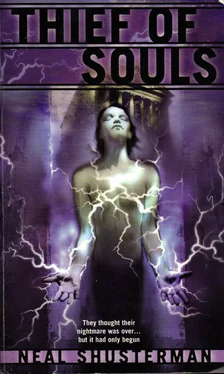

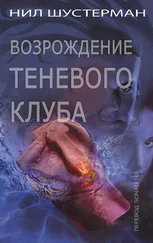
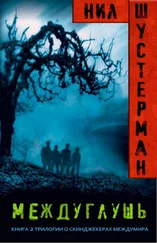

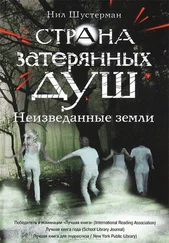
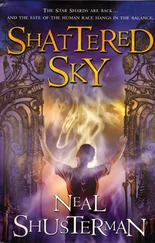

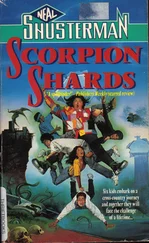

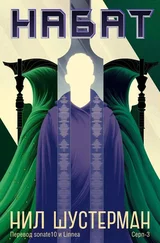
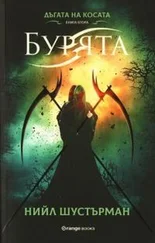
![Нил Шустерман - Жнец [litres]](/books/418707/nil-shusterman-zhnec-litres-thumb.webp)